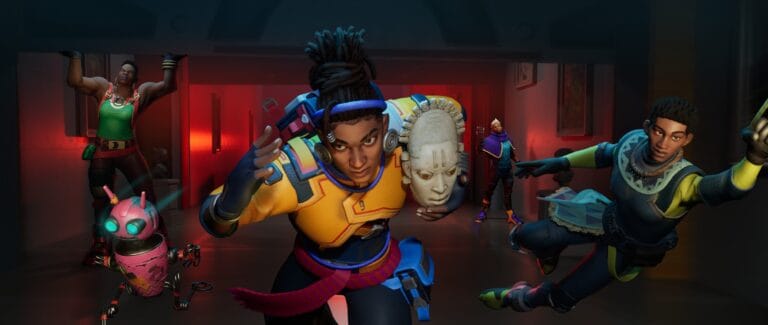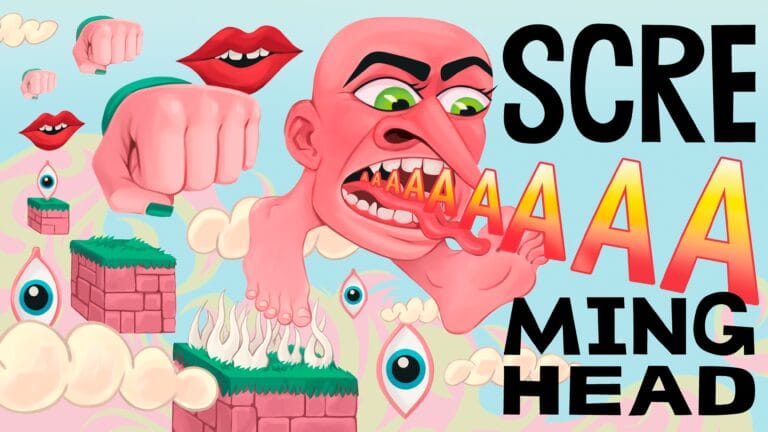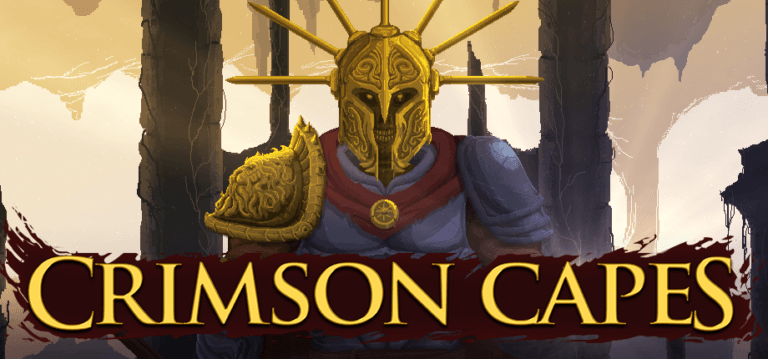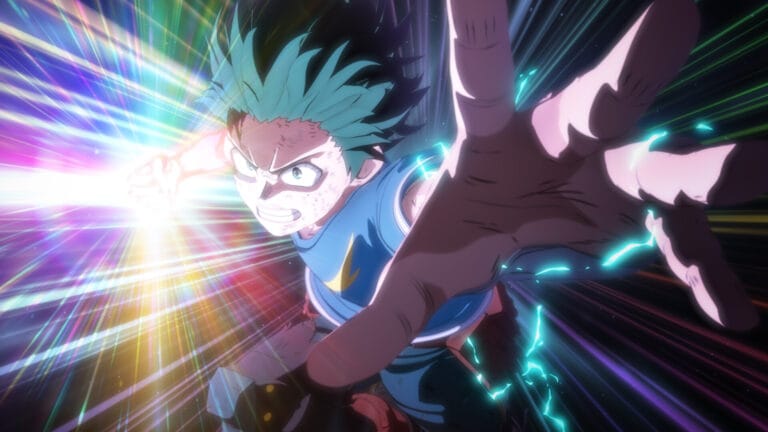Some games sneak up on you. You don’t see them coming until they’re curled in your lap, purring with the illusion of comfort—only to dig in their claws at just the right moment. Copycat, from debut duo Spoonful of Wonder, is that kind of game. At first glance, it’s a cozy feline simulator with whimsical undertones and a quaint artistic style. But beneath its furry façade lies a raw, emotionally potent narrative about loss, identity, abandonment, and what it really means to belong.
I didn’t expect Copycat to stay with me. But long after the credits rolled and the meow button faded from my muscle memory, the ache of its final act gnawed at me like a half-healed wound. This is not a perfect game—but it’s a profoundly human one, even if its protagonist walks on four paws and dreams in panther-black silhouettes.
The Uncanny Whiskers of Truth
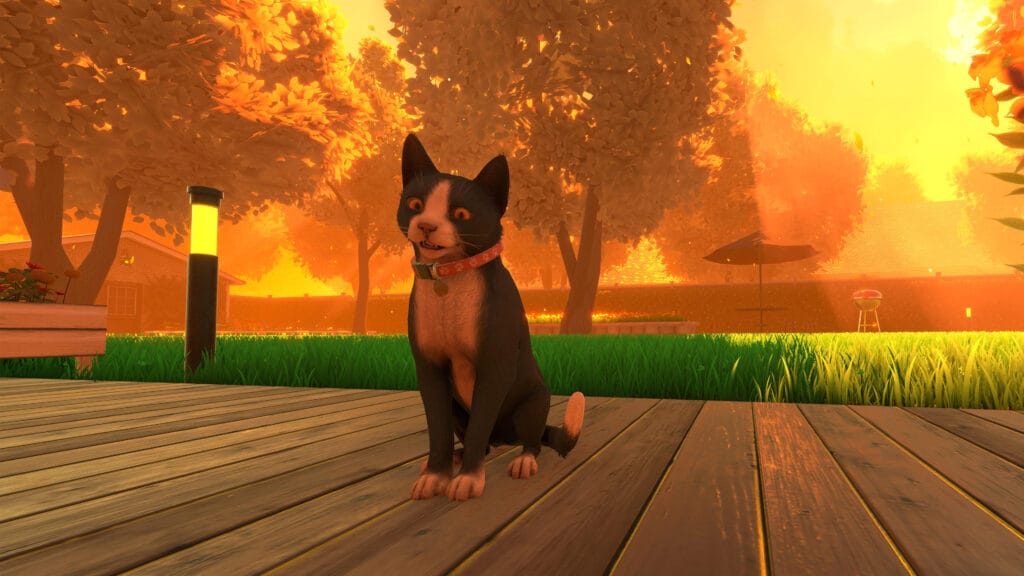
The heart of Copycat beats not in combat or collectibles, but in story. This isn’t just a tale of a shelter cat named Dawn. It’s a story of grief poorly managed, of people trying—and failing—to fill voids left by absence. It’s about how some traumas become cages, and others become claws we never stop sharpening.
You begin not as Dawn, but as Olive—a frail, elderly woman who walks with the labored rhythm of old lungs and heavier memories. Olive adopts a cat not out of love, but out of longing. She names the new feline Dawn, just like the one who ran away. It’s a painful foreshadowing—this new cat isn’t chosen for who she is, but for who she might replace.
When you slip into Dawn’s fur, Copycat shifts perspective—literally and figuratively. The game’s camera toggles between first- and third-person as Dawn explores Olive’s world, her thoughts floating in playful, sometimes snarky text bubbles above her head. “Another rug. Just what the world needs.” It’s a charming mechanic, disarming in its humor—until it’s not.
Because Copycat isn’t content to stay cute. Halfway through, the game claws its way into darker territory. Dawn is cast out—abandoned. Not lost, not run away. Abandoned. Olive, in an act as cruel as it is cowardly, drives her out into the wilderness and leaves her. Why? Because the “real” Dawn, the original, has returned.
Suddenly, it all makes sense—and hurts so much more. You were never meant to be loved. You were a placeholder. A prosthetic heart.
And the emotional turn isn’t just shocking—it’s personal. As an adopted person myself, that twist hit differently. I’ve lived the quiet questions of being chosen but not cherished. Of wondering if love is contingent on being exactly who someone expects you to be. The game doesn’t just hint at these themes—it stares you down with unblinking, catlike honesty.
There’s a dreamscape in Copycat where Dawn envisions herself as a wildcat—a sleek black panther running free. At first, these sequences feel like whimsy. But as the narrative unfolds, they become desperate escape attempts. The jungle becomes a metaphor for a kind of freedom that only exists in fiction. Dawn’s wildcat form isn’t strength—it’s a mask for a terrified creature with nowhere to go.
What elevates Copycat is not just that it tells a dark story, but that it dares to let its protagonist remain angry. Dawn doesn’t forgive easily. And Olive? Olive doesn’t get redemption. At least not the kind you might expect. This is a story that hurts because it’s not tidy. The wound is real, and the scar it leaves is jagged.
Claws in the Carpet of Choice
Let’s be honest: Copycat’s gameplay isn’t going to wow those hungry for systems-heavy depth. If you come in expecting Stray-like freedom or Little Kitty, Big City’s open-ended mischief, you’ll be disappointed.
Copycat is less a sandbox and more a terrarium—a tightly constructed environment where the illusion of agency is often just that. You can meow, jump on tables, knock over vases, even shred toilet paper in a glorious flurry of feline chaos. But these actions are mostly decorative, with limited systemic consequence.
The game unfolds in discrete days, each segment offering light interaction, some exploration, and occasional quick-time events. There’s no skill tree, no combat system beyond button-sequenced catfights, no branching narrative. It’s linear. Intentionally so.

Critics have rightfully pointed out how restricted the gameplay feels. And they’re not wrong. Sometimes you’re forced to make cruel choices—scratch or bite Olive—not because it’s what you want, but because the story demands it. It’s frustrating. But, oddly, I found that limitation powerful.
You’re a cat. You don’t have control over your world—not really. You don’t choose your human. You don’t pick your home. You react. You adapt. You survive. That lack of agency? That’s the point. You’re not the writer of this story—you’re its reluctant subject.
Still, some of the mechanics do falter. The platforming is floaty and imprecise. The camera shifts too often and too awkwardly. And the QTEs, especially in the latter half, feel increasingly like padding rather than meaningful tests of skill. There’s potential here—especially in the sections where you roam the neighborhood or sneak past hostile dogs—but it’s underdeveloped.
Meows in Minor Key
Visually, Copycat doesn’t strive for photorealism—it reaches for feeling. The game’s art direction is soft, painterly, almost storybook-like, especially during dream sequences. The environments—Olive’s cluttered home, the sun-dappled backyard, the eerie dream-jungles—are lovingly detailed, full of subtle storytelling.

There’s a melancholy coziness to Olive’s house. Each room tells a story: a brochure for a nursing home tossed in the trash, paintings of a younger Olive and her estranged daughter, an unused oxygen tank by the bed. It’s domestic archaeology, and it builds character without words.
Then there are the dreams. Here, the game’s aesthetic shifts dramatically—balloon-like trees, watercolor skies, panther silhouettes stalking glowing prey. These sequences are surreal, expressive, and a little sad. They’re not about escapism—they’re about yearning.
The music, composed by Daniel Bunting, is a revelation. It oscillates between jazzy piano introspection and orchestral swells that wouldn’t feel out of place in a Disney nature documentary. And that’s not accidental. A narrator—voiced like a BBC wildlife host—follows Dawn’s journey, sometimes praising, sometimes chastising, always watching. It’s equal parts hilarious and heartbreaking. The juxtaposition of majestic narration with a cat knocking over soup bowls is genius.
But the emotional core is in the quieter moments. A simple theme plays as Dawn curls up in Olive’s lap. A gentle piano riff underscores the heartbreak of being left behind. Music isn’t just background here—it’s a character, a mood, a memory.
Voice acting, too, is top-notch. Olive’s performance carries a fragile dignity, even in her weakest moments. Her daughter Mae’s venom drips off every syllable. And while Dawn doesn’t speak, her thoughts—projected in white script across the environment—feel alive. Witty, wounded, watchful.
Paws on My Heart
When I say Copycat made me feel, I don’t mean the fleeting amusement of a clever joke or the aesthetic pleasure of a well-rendered sunset. I mean feel. Guttural. Lingering. Real.
The game caught me off guard early on with its intimacy. One of my first interactions as Dawn was to curl up on Olive’s lap. No dialogue. Just stillness. Just warmth. Just that purring rumble of a being slowly letting down its guard. And I felt myself doing the same.
As the days passed, I played with butterflies, knocked over photo frames, and meowed at locked doors, wondering why this woman who claimed to love me kept me so tightly controlled. The slow erosion of trust, from cozy curiosity to cautious suspicion, was deftly handled. And it was in the silences—those spaces between commands and QTEs—that I truly became Dawn.
Then came the abandonment.
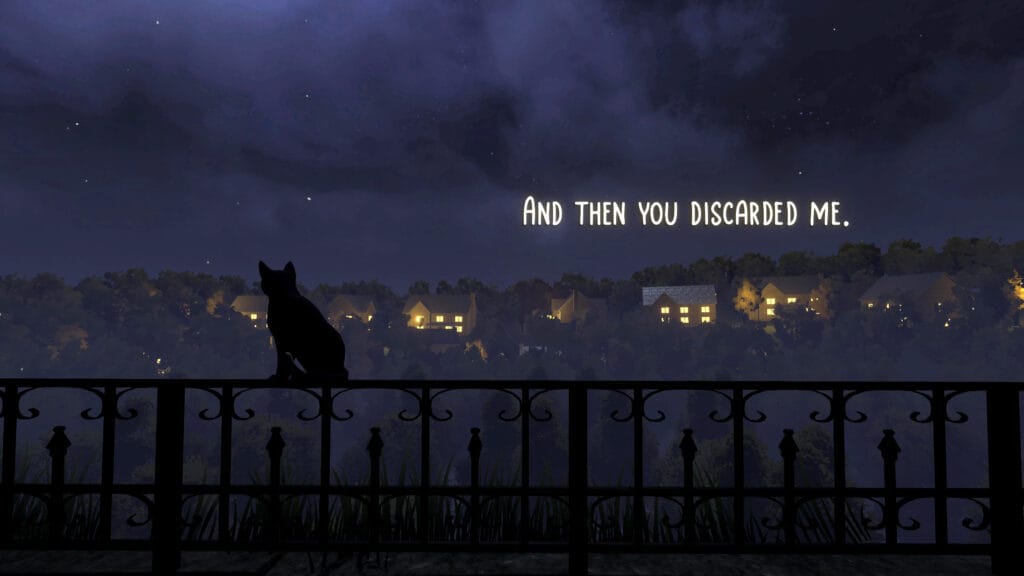
I didn’t cry immediately. I stared at the screen, stunned, as the car door closed and Olive drove away. It felt like a betrayal, not just of character, but of me. I had tried to be good. I had nuzzled her hand. I had purred beside her. And this was how I was repaid?
But Copycat isn’t about what’s fair. It’s about what is.
Roaming the streets alone, scavenging for food and warmth, I was no longer playing a game. I was surviving it. Every encounter with an angry dog or indifferent human stung with familiarity. It reminded me of foster kids I’d met, of shelters I’d volunteered at, of all the unwanted animals whose only crime was being inconvenient.
I’ve played hundreds of games, but few have left me with the ache of Copycat. It didn’t just ask me to sympathize—it demanded empathy. It forced me to sit with discomfort, to watch characters I’d grown to love fail one another in profoundly human ways.
It wasn’t fun. But it was unforgettable.
Purring on Thin Ice
For a game of such emotional sophistication, Copycat doesn’t always land technically. And that’s a shame, because when it works, it really works.
Visually, the game holds up well on most platforms, with beautiful lighting, stylized assets, and smooth character animations—especially Dawn, whose feline fluidity is impressively well-captured. But the seams do show.
Camera control is another sore spot. The frequent toggling between first- and third-person views is meant to reflect shifts in tone and focus, but it can be disorienting—especially during platforming or chase sequences. Sometimes I found myself fighting the camera more than I was fighting obstacles.
There are also a few minor bugs. Dawn occasionally clipped through furniture. Jumping mechanics felt slippery. And the lack of feedback in some QTEs left me unsure whether I’d failed or succeeded.
Yet, these issues never truly broke immersion. Credit where it’s due: the voice acting and ambient design are phenomenal. Every meow, cough, and shuffle of footsteps is rendered with care. And the user interface is clean, minimalist, and unobtrusive—letting the story breathe.
For a debut title, it’s commendable. But it’s not flawless.
One Life Left
Copycat is not a long game. My first playthrough took just under three hours. Even with exploration, you’re looking at a four-hour ceiling.
That brevity is both a strength and a limitation. On one hand, the compact narrative makes for a focused, poignant experience with no filler. On the other, the lack of significant branching paths, alternate endings hampers replayability.
And that’s the rub. Because Copycat is so emotionally linear, revisiting it feels like rereading a painful letter—you might gain new insights, but the message doesn’t change.
That said, I’d love to see future DLC or mod support—The world Spoonful of Wonder has built is rich enough to warrant deeper exploration.
But as it stands, Copycat is more of a one-sitting emotional journey than an enduring sandbox.
Pros and Cons
Pros
- Deep, emotionally resonant narrative
- Exceptional voice acting and narration
- Striking visual and artistic direction
- Unique cat-perspective gameplay
- Subtle environmental storytelling
- Gorgeous, cinematic soundtrack
- A rare exploration of shelter animal psychology
Cons
- Limited player agency and linear structure
- Clunky platforming and floaty controls
- Some repetitive mini-games
- Short runtime with little replayability
Don’t Judge This Cat By Its Cover
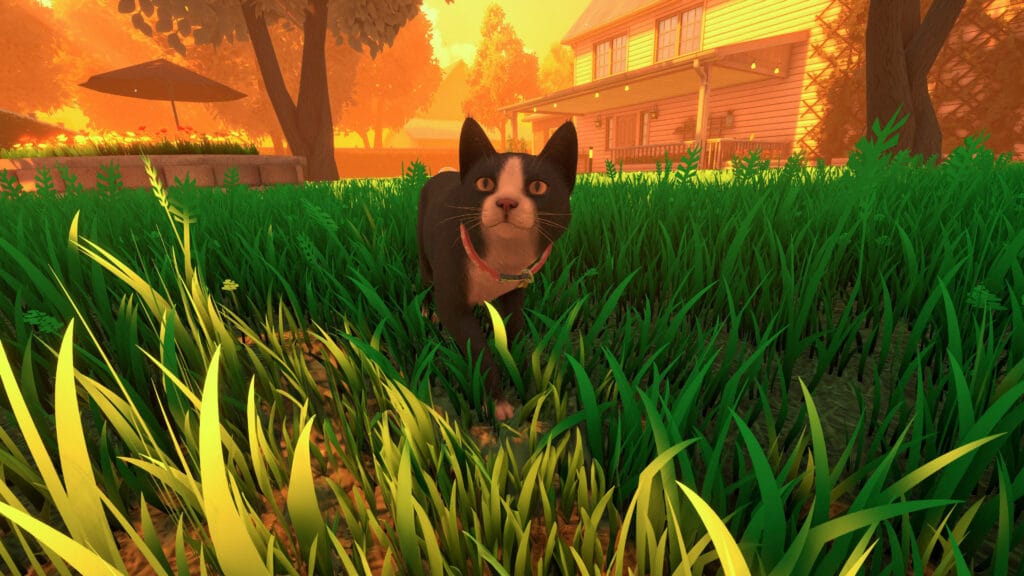
In a year brimming with blockbuster releases, Copycat is easy to miss. It doesn’t roar. It doesn’t leap with AAA polish. It purrs. It creeps. It curls around your ankle and waits for you to notice.
And you should notice.
Because what Spoonful of Wonder has created here is more than a quirky indie. It’s a story about grief, survival, and the tenuous threads that bind us—across species, across traumas, across time.
Yes, it falters. Yes, it’s short. Yes, it left me angry and raw in places I didn’t expect. But it also moved me in a way few games ever have. Copycat doesn’t aim to entertain so much as it aims to matter—and it does.
So, if you’ve ever loved a pet, lost a home, or wondered what makes someone family, give this game a chance. Let it claw at your heart. Let it hurt. Let it heal.
⭐ Final Verdict: 3.8 / 5 ⭐
The Precinct was reviewed on PC. Review code was provided by the developers.
